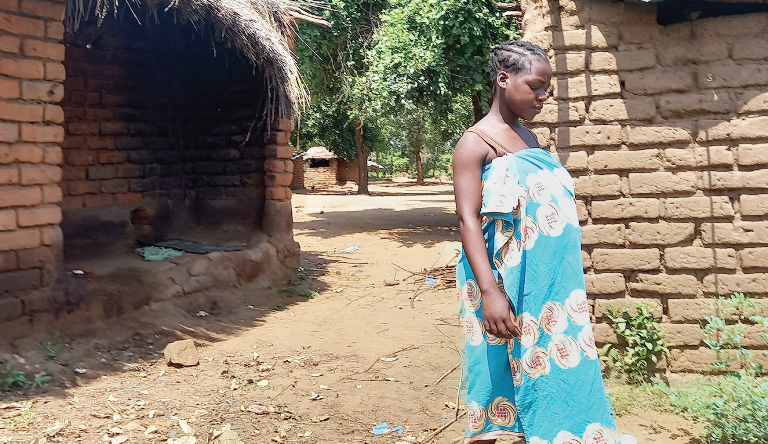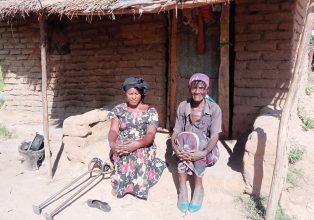Teen pregnancy in the face of disaster
Tropical Storm Ana that wreaked havoc in the Southern Region of Malawi displaced 5 313 women exposing them to a range of health and economic issues, according to the Department of Disaster Management Affairs (Dodma).
Among the women is 17-year-old Edah Fere from Traditional Authority Mlelemba in Chikwawa District, who fell pregnant while in Standard Seven.

Four months later, she and her family were rendered homeless and took refuge at Namira Camp after heavy rains induced by Tropical Storm Ana destroyed their house and property.
“I fell in a sexual relationship with a sixteen-year-old classmate, but when he realised that I was pregnant, he backed down. My mother tried to reason with his family but they said he was too young to impregnate a woman.
“We lost everything including our house, life in the camp has not been easy, especially with my condition. I am in my seventh month now but nothing has been bought in preparation for child delivery. Most of the time we go to bed hungry, life hasn’t been fair on my side,” narrates Fere, who lost her father at the age of eleven.
Her mother, Mbilijawo Bisitala, was fined K20 000 and four chickens as punishment for her daughter’s mischief.

“I depend on piecework for survival, I only managed to pay K10 000 and I am still struggling to finish the balance.
“I try hard to provide for my pregnant daughter but it hasn’t been easy,” says the 32-year-old single mother of three.
A February assessment report by Dodma says women in camps require delivery kits and other reproductive health services for women of childbearing age such as family planning, dignity kits, and post-abortion care.
“Though health facilities are functional, the forced displacement of large populations into camp areas has resulted in lack of access to basic essential health services. Pregnant women and children under five, especially undernourished and malnourished children are particularly at risk of getting sick,” reads the report.
Fere’s predicament derives from lack of information about sexual and reproductive health and rights.
Inadequate access to services tailored to young people, family, community and social pressure to marry and sexual violence are other contributing factors to teenage pregnancies in Malawi despite efforts by government and development partners to tame it.
A recent United Nations Educational, Scientific and Cultural Organisation analysis of unintended pregnancy in Eastern and Southern Africa highlights that while well over half (64 percent) of young women ages 15 to 19 in Malawi are sexually active, only about 15 percent use modern contraception.
According to the National Youth Friendly Health Services Strategy (2015-2020),teenage pregnancy persistently leads to girls’ failure to complete education, which is detrimental to both the development and economy of the country.
Gender activist Emma Kaliya bemoans the continued cases of teenage pregnancy, but encourages girls including Fere to take advantage of the Ministry of Education’s Readmission Policy.
She said: “It is sad that girls keep exposing themselves to such harsh conditions. Some of them it’s deliberate while some fall to peer pressure. It’s depressing to note that despite our efforts, this keeps recurring.”





One Comment